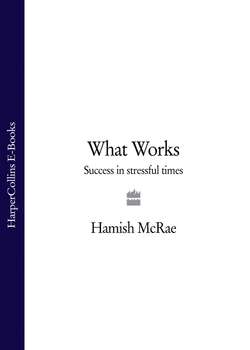Читать книгу What Works: Success in Stressful Times - Hamish McRae - Страница 23
2. WHAT ARE THE LESSONS?
ОглавлениеAt one level it is all very simple. Switzerland developed a model and applied it to the city with the most serious drug problem in Europe. So other places can pick up this model, adapt it to local conditions and roll out similar programmes. Many have done so. Particular elements of the Swiss approach now widely used elsewhere are injection rooms in pharmacies and needle-exchange programmes. The twin ideas of harm reduction and turning drug use into a medical issue rather than a law-and-order one have been widely imitated.
It has been applied, for example, in Britain. At the first stage three clinics were opened, one in south London, one in Darlington in north-west England and one in Brighton on the south coast. It has, according to Professor John Strang, the head of the National Addiction Centre at the King’s College in London, who is leading the study, been a huge success. In 2007 he reported that instead of buying street heroin every day, about 100 of the 150 volunteers were buying it only four or five times a month-while the rest of them had completely stopped ‘scoring’ the drug on the streets.
Professor Strang said: ‘This is genuinely exciting news. These are people with a juggernaut-sized heroin problem and I really did not know whether we could turn it around. We have succeeded with people who looked as if their problem was unturnable, and we have done it in six months.’9
So the medical approach works. But there is another element to the programme that is arguably just as important: alongside the medical approach, there was in Switzerland a fierce legal crackdown. Just before Letten was closed, the Swiss passed legislation giving police the power to search, arrest and detain anyone suspected of living without permission in Switzerland. All illegal foreign addicts and dealers were to be deported. These laws were dubbed ‘anti-foreigner’ but they had the authority of a referendum behind them. Two new prisons were built for foreigners suspected of committing an offence, and they were held in jail for up to a year without trial while waiting to be deported. As for Swiss drug users, if they were not from Zurich itself, they were sent to their home cantons for treatment. The tough legal approach was widely criticized-indeed by the advocates of the harm-reduction approach. The Association of Drug Specialists warned that the closure of Letten would force addicts to regroup elsewhere or go underground. Its president said the price of drugs would rise and the quality would fall as the scene was driven underground. As a result, the health of addicts would deteriorate still further. Fortunately, thanks to the treatment centres that were in place, those fears proved unfounded.10
So the Swiss approach has been a mixture of tender and tough. The Zurich experiment, focusing as it did on harm reduction and treating drugs as a medical rather than a criminal matter, was extremely liberal. But it has been more effective in Switzerland than elsewhere because it was backed by extremely illiberal legislation. The authority to hold foreigners without trial for up to a year is at the outer limits of the legal powers of Western democratic governments. Swiss powers to deport foreigners with relatively little right of appeal are much tougher than those of EU states. Even the power to force addicts to return to their home cantons for treatment is not something that other democracies would find easy to sanction.
The message therefore is a ‘both/and’, not an ‘either/or’. You must have proper anti-harm treatment but you also need tough anti-crime legislation. However, those tough laws did not focus on the crime of drug taking because that in itself is not considered a crime. Rather they focused on the dealers, and particularly the foreign dealers.
Many people will find this a difficult combination to accept. Indeed the tough elements were much criticized by many of the proponents of the emphasis on treatment rather than punishment-as the soft ones were criticized by people who put punishment first. The distinctions in the treatment of foreigners accused of drug dealing-the holding them without trial and the willingness to deport them-would be difficult for most European countries to adopt as, on the face of it at least, they breach their human rights. Switzerland has neither signed nor ratified the relevant protocol in the European Convention on Human Rights on expulsion of foreigners. In practice, it is inevitable that some people will be treated harshly and unfairly. But many will recognize there is a common-sense element here: a country is responsible for its own citizens but not for people who come to it and break its laws.
There is, finally, another tantalizing possibility. It is that you curb drug use by acting on the demand side rather than the supply. If you could cut demand, the whole drugs industry, and all the social evils associated with it, would collapse. The clever idea behind the tough/tender Swiss approach is that it has made heroin in particular less fashionable. If it has really been turned into a drug for losers, then that leads to another question: could one make other harmful activities-excessive drinking, say-something for losers too? Even if there can be no simple answer to that, a radical decline in drug use is a prize worth chasing.
•Mix tender and tough •Act on the demand side rather than the supply side •Seek balance between extremes
